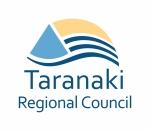Statement on hydraulic fracturing report
The Taranaki Regional Council welcomes the release of the Parliamentary Commissioner for the Environment’s interim report on hydraulic fracturing.
The Council will study this report carefully and make a detailed response in due course, with a view to informing her second report. In the meantime, the Council makes the following initial observations:
The Commissioner concludes that the environmental risks associated with hydraulic fracturing can be managed effectively provided, to quote the UK Royal Society, “operational best practices are implemented and enforced through regulation”. This has been, and continues to be, the Taranaki Regional Council’s position. This Council also notes the Commissioner’s view that a moratorium on hydraulic fracturing is not presently justified.
The Council’s monitoring of oil and gas activities is extensive. In the past 30 years, there have been thousands of site visits and inspections, analyses of thousands of air and water samples, and hundreds of bio-monitoring surveys associated with oil and gas activities. The Council has detected no significant adverse environmental effects attributable specifically to hydraulic fracturing.
The Council notes the Commissioner’s statement (p44) that “to date, there is no evidence that fracking has caused groundwater contamination in New Zealand, and at the current scale of operations, the risk appears low”.
The Council also notes the Commissioner’s statement (p47) that although the most common method of disposing of liquid waste, deep well injection, could result in the wastewater migrating into aquifers, “there does not appear to be any evidence that this has occurred in New Zealand”.
The Commissioner also refers to the landfarming of waste solids, saying these may contain heavy metals and hydraulic fracturing fluids. In Taranaki, landfarming is a consented and monitored activity, with operators required to meet specified loadings and concentrations to comply with recognised environmental standards and guidelines. For example, levels of any heavy metals must and do meet New Zealand agricultural guidelines at time of application.
This Council, of its own initiative and more than a year ago, sought a detailed legal review of its regulatory approach to hydraulic fracturing. Since July 2011, it has required resource consents for the discharge of water-based fluids deep into the earth’s surface. The Council has also commissioned a number of investigations into associated issues, including the possibility of freshwater contamination and significant seismic activity arising from hydraulic fracturing before this date. These investigations, which drew on the expertise of GNS Science and other expert agencies, found no evidence of such effects, and concluded there was little risk of such effects in Taranaki.
Localised contamination at the Shell Todd Oil Services Ltd (STOS) Kapuni wellsites has been well publicised and is referred to in the Commissioner’s report. The Council notes:
The issue is predominantly one of soil contamination.
Water supplies are not affected and expert advice notes there is little risk to water supplies.
This is essentially a legacy issue, arising predominantly from practices that took place prior to the existence of the Resource Management Act and, indeed, regional councils.
The nature of the contamination, operator information, and the fact that the issue involves both fractured and unfractured wells, confirms that hydraulic fracturing is not the root cause.
The Council has imposed a compliance regime around the issue, requiring the operator to undertake remediation. This is under way and there has been full co-operation from STOS.
The Commissioner’s report comes against a backdrop of continuous improvement and better risk management. Wellsite operators have become increasingly focused on improving their health, safety and environmental practices over the years, taking advantage of scientific and technological advances to allow, for example, the use of water-based fluids in processes such as hydraulic fracturing. For its part, this Council continually reviews and improves its own regulatory and monitoring performance, and also takes advantage of scientific and technical advances.
This Council agrees with the Commissioner that the present regulatory frameworks around hydraulic fracturing, and oil and gas development in general, are quite complex and worthy of review to ensure that roles are clear and that the level of attention is commensurate with the risk. This Council is working closely with Government agencies on a number of relevant reviews aimed at improving the effectiveness and efficiency of regulation of the sector, and providing appropriate public assurance. This Council has had many years of experience in regulating and monitoring oil and gas exploration and production, and willingly shares its expertise with other agencies. However, it agrees with the Commissioner that given New Zealand’s geographical variations, regional approaches need to be shaped for circumstances.
